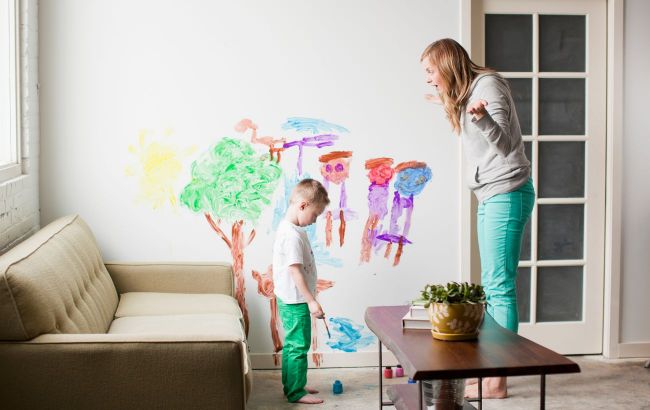What children feel when their parents yell at them and how to fix it
 What children feel when their parents yell at them and how to fix it (Illustrative photo: Getty Images)
What children feel when their parents yell at them and how to fix it (Illustrative photo: Getty Images)
Raising your voice at a child is the last resort. However, parents who argue that it's impossible to achieve what they want from a child without yelling may not agree with us. Constantly shouting at a child is very harmful to their development.
What children feel when parents are yelled at
According to neuropsychologists, constantly raising your voice at a child can seriously harm their mental health and even lead to the development of aggression or depression.
A common practice among parents is to shout if the child refuses to do something the first time. In doing so, parents immediately demonstrate their powerlessness. Believe me, the child feels it, just as they sense your patience. In some cases, this is simply the child testing the limits of what is permissible.
Researchers at the University of Pittsburgh conducted a large-scale study over two years and found that yelling in everyday life led to behavioral problems in children, especially among teenagers aged 13-14.
Moreover, yelling did not solve the problem; instead, it only intensified it. Even after parents calm down and show their love to the child, it does not reduce the harm caused by the trauma.
Young children are unable to understand the difference: when parents yell at them, it doesn’t mean they don’t love them; it may simply be that the adults had a tough day.
Toddlers don’t comprehend the reason behind this, which causes them to feel anxiety and stress. This, in turn, leads to changes in the structure of their brains during the early years of life due to an excessive release of the hormone cortisol into the bloodstream.
How to avoid yelling at your child
Ask for help. Let your children know that you want to be calmer and that you need their assistance. They should try to follow your requests the first time and remind you not to yell if emotions take over.
Breathe. Start taking deep breaths, and counting your inhales and exhales. This simple advice helps distract you from unpleasant thoughts and restores your ability to assess the situation healthily.
Yell in your mind. Close your eyes and imagine yourself yelling. Say everything that has built up, throw a tantrum, and let your feelings flow - all in your imagination. Once you’ve mentally expressed everything, open your eyes and start speaking to your child more calmly.
Leave the child alone. You’re yelling at the little ones because they don’t want to clean up their toys. Stop yelling and redirect your attention. Go to another room, turn on the TV, wash the dishes, start cooking lunch, do some cleaning, read a book, or watch a series. Calm yourself down, and only after that, return to the child and suggest cleaning up the toys together.
Talk to the child. Ask what they want - do they want to play? Are they tired? Do they want something to eat? Find the reason behind the child's fussiness and disobedience.
Go for a walk. A change of scenery and fresh air can be very helpful. If you have the chance to take a walk alone, that's great. If not, take the child along and go together. You can visit a playground, walk through a park, or collect leaves.
Talk to someone. Call your mom, partner, friend, or therapist. It’s important to vent to someone to release your emotions.
Imagine you’re in a crowd. Yelling at a child in a public place is inappropriate, and picturing such a situation can help you keep your composure. Visualize hundreds of people around you, with ears and eyes watching. This can be very helpful in calming you down.
What to do if you have yelled after all
If you still lost your temper and yelled at your child, you need to regain their trust and show your genuine feelings.
Tell them you love them
Your children know this, and they love you too. However, after yelling, they might start to doubt it. Reassuring them is important, but wait until your emotions have settled a bit so the child is ready to hear your words.
You need to apologize
It’s important to say you’re sorry and explain why you yelled. Hug the child, sit next to them, and honestly share that you had a tough day at work, you’re not feeling well, or you were very upset about the messy room. Offer solutions, like cleaning up together.
Move on
Your children are complete individuals, so don’t let them define themselves by a poor choice they made.
If you had to reprimand your child for bad behavior or a messy room, after explaining, move on. Simply switch to another topic and stop discussing unpleasant matters.
Talk about school, soccer, or any other interests. This will help show that you care about them and are not judging them for their mistake.
The sources used in writing this article include Nasha Mama, Parents, CNBC, and Vse dlia Ditei.

